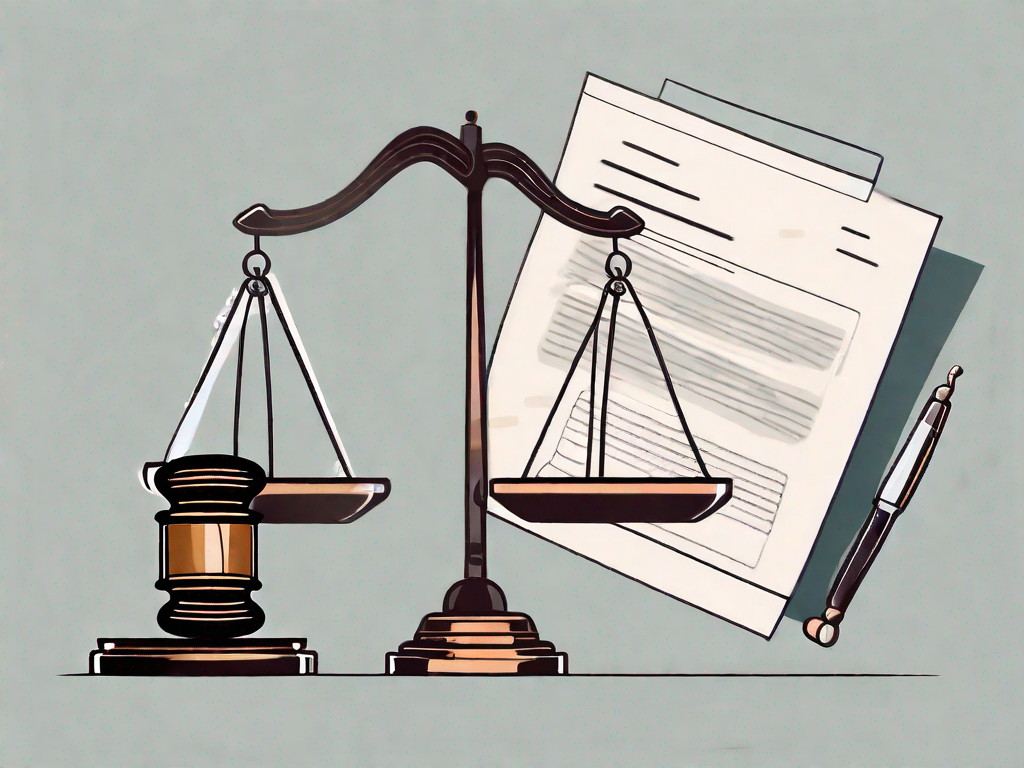අනාචාරය නැමති වෛවාහික වරද අපරාධ වරදක් නොවේ
අනාචාරය මත දික්කසාදයක් නොමැතිව වුවද අනාචාරියා ගෙන් වන්දි ඉල්ලා නඩු පැවරිය හැකියි: ශ්රේෂ්ඨාධිකරණය

අනාචාරය මත දික්කාසාදය ඉල්ලීමක් සිදු නොකර වුවද, එකී අනාචාරයට හවුල් වූ අනාචාරියාගෙන් (සම විත්තිකරුගෙන්) අනාචාරය මත ‘තම සහවාසය අහිමිකරලීම’ මඟින් “හානි කිරීම”- Injuria යන සිද්ධාන්තය මත’ වන්දි අය කර ගත හැකි බව ශ්රේෂ්ඨාධිකරණය පසුගියදා තීන්දු කළේය.
ද්වේෂ සහගත අතහැර යෑමේ වෛවාහික වරද මත බිරිඳ (පැමිණිලිකාරිය) විසින් තම සැමියා (විත්තිකරු) හට මෙම දික්කසාද නඩුව පවරන ලදී. ස්ථිර දික්කසාද දීමනාවක් මෙන්ම දරුවන්ගේ භාරකාරීත්වයද මෙහිදී ඉල්ලීම් කොට තිබුණි.
හැටන් දිස්ත්රික් අධිකරණයේ ගොණු කෙරුණු මෙම දික්කසාද නඩුවේ උත්තරය ගොනු කරමින් විත්තිකරු විසින් සඳහන් කරන ලද්දේ මෙම විවාහය පළුදුවීමට හේතු වූයේ තමන්ගේ අතහැර යෑම නොව පැමිණිලිකාරිය විසින් වෙනත් අයෙකු සමග අනාචාරයේ හැසිරීම බවයි. කෙසේ වෙතත්, ඔහු තම උත්තරය මගින් තමන්ගේ වාසියට දික්කසාදය ලබාදෙන ලෙස ඉල්ලීමක් කර නොමැති අතර, ඔහු හුදෙක්ම මෙම පැමිණිල්ල නිෂ්ප්රභාකරන ලෙස පමණක් අධිකරණයෙන් අයැද ඇත.
මෙහිදී විශේෂිත කරුණ වූයේ අනාචාරය නැමැති වරදට හවුල් වූ අනාචාරියා ඔහු විසින් තම උත්තරය මගින් සම විත්තිකරු ලෙස නම් කරමින්, තම බිරිඳගේ “සහවාසය” අහිමි කිරීම මඟින් (Loss of Consortium) තමන්ට හානි පැමිණවීමේ (Injuria) පදනම මත රුපියල් මිලියනයක වන්දි මුදලක් අනාචාරියා ට එරෙහිව අධිකරණයෙන් ඉල්ලා සිටීමයි.
හැටන් දිසාධිකරණය පැමිණිල්ලේ නඩුව නිෂ්ප්රභාකරමින් විත්තිකාර සැමියා අනාචාරය ඔප්පු කර ඇති බව තීන්දු කරමින් රුපියල් ලක්ෂ පහක වන්දි මුදලක් සැමියාහට ගෙවීමට සම විත්තිකරු හට (අනාචාරියා හට) තීන්දු කළේය. එම තීන්දුවට එරෙහිව සම විත්තිකරු විසින් මහනුවර පළාත් බද මහාධිකරණය වෙත අභියාචනයක් ගොනුකරන ලද අතර එහෙත් එය අධිකරණය ප්රතික්ෂේප කළේය.
ශ්රේෂ්ඨාධිකරණය ඉදිරියේ මෙම තීන්දුවට එරෙහිව අභියාචනා කරන ලද සම විත්තිකරුගේ ප්රධාන තර්කය වූයේ, දික්කසාද නඩුවකදී අනාචාරය නමැති වෛවාහික වරද මත දික්කසාදය ඉල්ලීමක් සිදු නොකොට අනාචාරියාගෙන් එම නඩුව තුළින්ම වන්දි ඉල්ලීමක් සිදුකළ නොහැකි බවත්, එමෙන්ම, එකී අනාචාරියා සම විත්තිකරු ලෙස නඩුවට පාර්ශ්වයක් ලෙස එකතු කිරීම සිවිල් නඩුවිධාන සංග්රහයට පටහැනි බවයි.
ශ්රේෂ්ඨාධිකරණ විනිසුරු ප්රියන්ත ප්රනාන්දු මහතා විසින් තම තීන්දුව පසුගියදා ප්රකාශයට පත් කරමින් මෙකී නෛතික තත්ත්වය පිළිබඳව පහත පරිදි අධ්යයනය කරන ලදී.
ශ්රේෂ්ඨාධිකරණයේ අවධාරණය කොට ඇත්තේ, තම බිරිඳගේ දික්කසාද පැමිණිල්ලට එරෙහිව විත්තිකාර සැමියා විසින් තම උත්තරය මගින් බිරිඳගේ අනාචාරයේ හැසිරීම යන වෛවායික වරද මත විවාහය පළුදු වූ නිසා ඇයගේ පැමිණිල්ල නිෂ්ප්රභා කරන ලෙස පමණක් ඉල්ලා ඇති බවයි.
එහෙත් අනාචාරය වරදට හවුල් වූ අනාචාරියාගෙන් තම බිරිඳගේ සහවාසය තමන් හටඅහිමි කිරීම මඟින් හානි කිරීම (Injuria) යන සිද්ධාන්තය මත මෙහිදී විත්තිකාර සැමියා විසින් නඩු නිමිත්ත පදනම් කොටගෙන ඇති බව ශ්රේෂ්ඨාධිකරණය අවධානය යොමු කොට ඇත.
එහෙයින්, දික්කසාද නඩුවෙන් පරිබාහිරව අනාචාරය නැමැති සිවිල් වරද නිසා තම සහවාසය අහිමි කිරීම සහ තමන්ට සිදුවූ හානිය මත අනාචාරියාගෙන් වන්දි ඉල්ලා නඩුවක් ගොනු කිරීමේ හැකියාව මෙහිදී ශ්රේෂ්ඨාධිකරණය විසින් අධ්යයනය කොට ඇත.
“…..Maasdorp’s Institutes of South African Law Volume IV, has discussed the issue of filing separate action for damages against the adulterer without filing action against the spouse for divorce. “The claim for damages is generally instituted in the action brought against the offending spouse for divorce, the person with whom the adultery has been committed being joined as co-defendant. The husband may, however, bring an action against the adulterer even though he has condoned his wife’s adultery, and similarly there is nothing to prevent him from suing for compensation in a separate action and that even without having first sued his wife for divorce, though the fact of his not having done so may raise a presumption of collusion which he will have to be prepared to meet by satisfactory evidence.” The above passage refers to cases of Viviers V. Kilian, 1927 A.D. 449 and Biccard V. Biccard and Fryer, 9 S.C. 473….” – Justice Priyantha Fernando
“….The cause of action against the co-defendant is for damages for injuria caused to the defendant by loss of consortium from his wife. Although the defendant opts not to seek divorce against the plaintiff, there is no reason why the defendant cannot proceed with the cause of action against the co-defendant for the injuria caused to him in the same action…..”
ශ්රේෂ්ඨාධිකරණය මෙහිදී අධ්යයනය කරන ලද්දේ, අනාචාරය පදනම්ව දික්කසාදය අයද නොමැති නඩුවකට අනාචාරියා පාර්ශ්වකාරයකු කරමින් තමන් හට වන්දි අයද සිටිය හැකිද යන්නයි.
“…As I have mentioned before, the learned District Judge has analyzed the evidence placed before her on the issue of adultery. If the adultery can be proved, the defendant has a clear cause of action against the co-defendant for loss of consortium of his wife (plaintiff) and the injuria caused to him. The issue that must be addressed is whether that cause of action can be joined in the same action without him seeking a divorce? Whether there is a misjoinder of causes of action?….”
කෙසේ වෙතත් ශ්රේෂ්ඨාධිකරණය, විනිශ්චිත නඩු තීන්දු අධ්යයනය කොට ගනිමින් සඳහන් කරන ලද්දේ, විත්තිකාර සැමියා විසින් මෙම නඩුව නිෂ්ප්රභාකරන ලෙස ඉල්ලා ඇත්තේ පැමිණිලිකාර බිරිඳගේ අනාචාරය පදනම්ව බවයි. එමෙන්ම, සම විත්තිකාර අනාචාරියාගෙන් වන්දි ඉල්ලා ඇත්තේ ද එම අනාචාරයේ හැසිරීම යන වෛවාහක වරද මත ම නිසා, යම් හෙයකින් අනාචාරියා මෙම නඩුවට පාර්ශ්වකාරයකු කිරීමට අවස්ථාව නොදුනහොත්, විත්තිකාර සැමියා හට තවත් නඩුවක් ගොනු කරමින් අනාචාරියාගෙන් වන්දි අය කර ගැනීමට සිදුවන බවත්, එමෙන්ම නැවතත් එම නඩුවෙන් අනාචාරය ඔප්පු කිරීමටද ඔහුට සිදුවන බව ශ්රේෂ්ඨාධිකරණය අධ්යයනය කොට ඇත.
“…According to his stance, in the instant case, the defendant needs to provide evidence of adultery between the plaintiff and the co- defendant in order to support and secure his claim, that it was the plaintiff’s adultery with the co-defendant, and not his desertion that caused the breakdown of the marriage. If the argument of the co-defendant is to be accepted, even after proving adultery in this case, the defendant will have to file another action for damages based on adultery, where he would be required to prove adultery once again….”
මෙවැනි නඩු නිමිති සහ පාර්ශවකරුවන් එකම නඩුවට එකතු කිරීමේදි නඩු ගාස්තු, කාලය සහ Common Sense Approach යන නෛතික තත්ත්වයන් අධ්යයනය කළ යුතු බව ශ්රේෂ්ඨාධිකරණය අවධාරණය කළේය.
අනාචාරය යන වෛවායික වරද මත තම බිරිඳගෙන් දික්කසාද ඉල්ලීමක් සිදු නොකොට, එහෙත් එම නඩුව තුලින්ම අනාචාරියාගෙන් අනාචාරය මත වන්දි අය කර ගැනීමට බාධාවක් නොමැති බව මෙහිදී ශ්රේෂ්ඨාධිකරණය තීන්දු කළේය.
“….Section 603 of the Civil Procedure Code provides for the defendant in a matrimonial action for dissolution of marriage, to oppose the relief sought by the plaintiff on any ground which would have enabled him to sue the plaintiff for such dissolution. The Court may in such action, give to the defendant in his application the same relief he would have asked for and be entitled to, as if he has presented a plaint seeking such relief….”
“…In the instant case, the defendant has opposed the action filed by plaintiff on the ground of desertion, stating that the alleged adultery has caused the breakdown of the marriage. I do not see any reason why the defendant cannot proceed against the co-defendant for damages caused to him by injuria, without proceeding for dissolution of the marriage in the same action……there is no misjoinder that would cause prejudice to the co defendant….” – – Justice Priyantha Fernando
මෙහිදි හැටන් දිසා අධිකරණයෙන් සම විත්තිකරු හට රුපියල් ලක්ෂපහක වන්දි මුදලක් විත්තිකාර සැමියා වෙත ගෙවීමට නියම කරන ලද තීන්දුව ශ්රේෂ්ඨාධිකරණය ස්ථිර කළේය.
“තවද මෙම නඩු තීන්දුව මගින්, ශ්රේෂ්ඨාධිකරණ විනිසුරු ප්රියන්ත ප්රනාන්දු මහතා අවධාරණය කරන ලද්දේ, අනාචාරය නමැති වෛවාහික වරද අපරාධ වරදක් නොවන සිවිල් වරදක් බවත්, එහෙත් එවැනි වරදක් සිවිල් අධිකරණය ඉදිරියේ ඔප්පු කිරීමේදී සාධාරණ සැකයෙන් ඔබ්බට සාක්ෂි මඟින් ඔප්පු කළ යුතු බව විනිශ්චිත නඩු තීන්දු අධ්යයනයේදී පැහැදිලි වන තත්ත්වයක් බවයි.”
“…In Sri Lanka adultery is not a penal offence. However, our Courts have taken the view that the standard of proof required to establish adultery to be of proof beyond reasonable doubt. Adultery is a ground for divorce and the aggrieved spouse may claim damages against the co-defendant..” – Justice Priyantha Fernando
Case No : S.C Appeal 10/2018 (Decided on 01.11.2024)
Before : P. Padman Surasena, J
Achala Wengappuli, J
K. Priyantha Fernando, J
………………..







